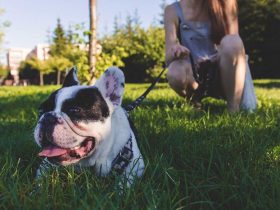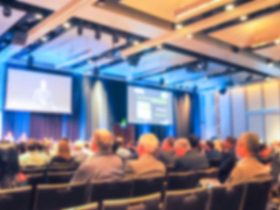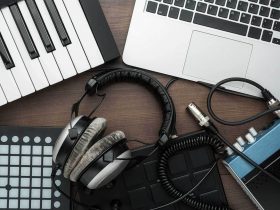Food fuels your day and workouts, so what you eat is crucial for exercise performance. Eating at the right times can give your body a boost and aid in recovery.
Nutrient timing, or when to eat around your workout, focuses on when your body needs fuel and when it can use it best.
The timing of your meals depends on various factors and personal preference. Discover how timing your meals and snacks can impact your workouts.
Should you eat before or after a workout?
Experts generally recommend both because having proper nutrition before and after exercise is crucial for performance, recovery, and overall health. However, the decision to eat before or after a workout may also depend on other factors.
- Exercise type and intensity: Intense workouts use more energy and cause more muscle damage. If you’re lifting heavy weights, for instance, you’ll need to pay more attention to both pre and post-workout nutrition compared to someone jogging on the treadmill for 30 minutes.
- Exercise duration: Longer workouts use up more energy and stress your muscles more. If you’re training for a marathon, eating is important for fueling your run and recovering from it.
- Fitness goals: Building muscle and increasing cardiovascular endurance have different nutrient requirements. For example, bodybuilders need sufficient protein for muscle growth, while those aiming for weight loss need to watch their calorie intake and ensure their pre and post-workout nutrition fits within their daily limits.
Eat before workout
Eating before your workout has several benefits:
- Provides energy: During exercise, your muscles primarily use carbohydrates (carbs) for fuel. Having a full store of glycogen (carbs stored in your liver and muscles) at the start of your workout can prevent fatigue and enhance performance.
- Stabilizes blood sugar: If you haven’t eaten for a while before exercising, your blood sugar levels may drop, leading to fatigue and dizziness. Eating a meal or snack before your workout can raise your blood sugar levels.
- Kickstarts recovery: Protein provides the amino acids needed for muscle growth and recovery. Including some protein in your pre-workout snack or meal ensures your muscles have what they need to recover after exercise.
What to eat for energy before exercise depends on the type and duration of your workout:
- For light workouts, exercising such as walking or jogging with your registered dog on an empty stomach is fine.
- For moderate-intensity workouts lasting less than an hour, ensure your last meal was balanced and your stomach isn’t growling.
- For high-intensity or longer workouts (an hour or more), include carbs in your meal 2 to 4 hours before, along with high-quality protein. Combining protein and carbs has been shown to improve performance in endurance athletes.
Some pre-workout meal/snack ideas include:
- Chicken breast with brown rice and a salad
- Whole-grain tortilla with scrambled eggs and veggies
- Buddha bowl with quinoa, chickpeas, and spinach
If it’s closer to your workout, opt for easily digestible snacks like:
- Banana with peanut butter
- Crackers with hummus or cheese
- Oatmeal with fruit
While these are general recommendations, serious athletes may want more specific guidelines on carbohydrate and protein intake by weight.
Is it okay to exercise on an empty stomach?
For high-intensity workouts, it’s not recommended to exercise on an empty stomach as it may impact performance and recovery. However, for lighter workouts, skipping the pre-workout meal or snack may be fine depending on how you feel. Avoid exercising to the point of feeling dizzy or lightheaded.
Regarding fat loss, some claim that working out on an empty stomach burns more fat by using fat stores for energy. However, research doesn’t strongly support this claim. Studies suggest that exercising in a fasted state versus after eating doesn’t significantly affect body composition.

Eat after workout
Eating after a workout is vital for boosting your recovery and maximizing your results. Here’s why:
1. Refreshes Energy Stores:
After exercising, your muscles use up glycogen, a form of stored carbohydrates, for energy. Replenishing these glycogen stores immediately after your workout helps prepare your body for your next session. Good sources of carbohydrates for refuelling include fruits, whole grains, and starchy vegetables like sweet potatoes.
2. Repairs Muscle Damage:
Intense workouts, such as heavy weightlifting or sprinting, cause micro-tears in your muscle fibres. The post-workout period is crucial for repairing this damage. Protein is essential for muscle repair and recovery. Consuming protein-rich foods within 2 hours after your workout can speed up the repair process. Opt for sources like chicken, fish, eggs, dairy, beans, lentils, nuts, or quinoa.
3. Aids Muscle Growth:
In addition to repairing damage, consuming protein after a workout also stimulates muscle protein synthesis, the process by which new muscle tissue is formed. This aids in muscle growth and strength development.
What to Eat for Muscle Recovery After Exercise:
To optimize muscle recovery after exercise, focus on a balanced post-workout meal that includes both carbohydrates and protein:
- Protein Sources: Include lean proteins like chicken, fish, turkey, eggs, Greek yoghurt, cottage cheese, tofu, tempeh, or protein shakes.
- Carbohydrate Options: Choose complex carbohydrates such as whole grains, fruits, vegetables, and legumes. These provide sustained energy and help replenish glycogen stores.
- Hydration: Don’t forget to hydrate! Water is essential for proper muscle function and recovery. Consider incorporating electrolyte-rich fluids like coconut water or sports drinks to replenish lost minerals.
The key takeaway
Having the right nutrition before and after your workouts is crucial. It helps you achieve your performance goals and maintain good health overall. What and when you eat depends on the intensity and duration of your workout, as well as your goals. Higher-intensity workouts burn through muscle glycogen faster and cause more muscle damage, so as your workouts become longer and more intense, paying closer attention to your pre and post-workout nutrition becomes increasingly important.





























